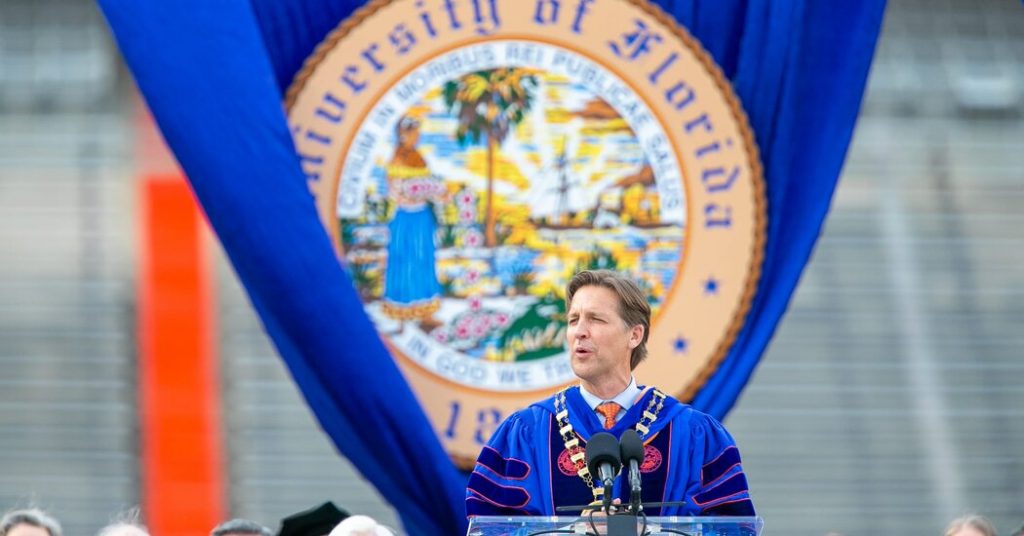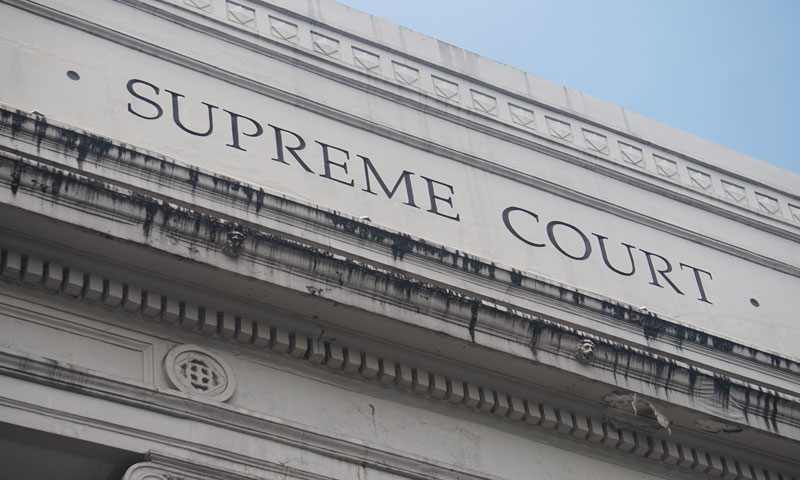
Ben Sasse, the former University of Florida (UF) president and a Republican ex-senator from Nebraska stepped down from his position in July 2024, only 17 months into a lucrative $10 million five-year contract. While Sasse cited his wife’s health as the reason for his departure, many speculate that other factors, including declining university rankings and tensions with UF’s board of trustees, played a significant role.
A Sudden Exit Amid Declining Rankings
During Sasse’s short tenure, the University of Florida dropped from No. 5 to No. 6 in the U.S. News & World Report’s national university rankings. Additionally, the Levin College of Law slipped from No. 21 to No. 22, marking a noticeable decline in its upward trajectory. Less than a decade ago, the law school was ranked No. 48, making the drop particularly concerning for stakeholders.
While Sasse reportedly showed little regard for U.S. News rankings, the university’s politically connected board of trustees held a different perspective. According to the New York Times, a growing divide emerged between Sasse and the board, which was increasingly concerned about the university’s slipping rankings. Some campus insiders believe this tension contributed to Sasse’s unexpected departure.
Questionable Tactics to Boost Rankings
The New York Times detailed various methods the Levin College of Law employed in the years leading up to Sasse’s presidency to climb the rankings.
Tuition Discounts and Financial Strain
One controversial tactic was offering substantial tuition discounts to students with high LSAT scores, a move designed to improve the school’s statistical profile. However, this strategy came at a significant cost. Inflation-adjusted tuition revenue plummeted from approximately $36 million in 2013 to just $8 million in 2022. Paul Campos, a law professor at the University of Colorado Boulder, highlighted this dramatic financial impact in his analysis.
Inflated Faculty Numbers and Wasteful Spending
Other efforts to improve rankings included boosting faculty numbers and upgrading infrastructure. Michelle Jacobs, a former UF law professor, revealed that the school purchased all new chairs and discarded “perfectly good” ones to create an illusion of modernization. Additionally, guest speakers were counted as part-time faculty members, leading to an increase in reported faculty numbers from 250 in 2021 to 343 in 2022.
Despite these efforts, the law school’s bar passage rates lagged behind other institutions in the state. In May 2024, UF’s law school ranking dropped further to No. 28, a significant blow to its reputation.
Controversial Spending Under Sasse
During Sasse’s presidency, student journalists at the Independent Florida Alligator uncovered that his office had tripled its spending. Much of this increase went toward lucrative consulting contracts and high-paying remote positions, many of which were reportedly filled by GOP allies.
Sasse defended the spending as necessary for his vision of transforming the university. However, the expenditures sparked criticism from students and faculty, further fueling controversy during his brief tenure.
A Mixed Legacy: Bar Passage Success Amid Tumult
Despite the challenges and controversies, there was some positive news. Under Sasse’s leadership, the university’s bar passage rate increased to over 90%, a 10-percentage-point improvement from the previous year. This achievement highlighted the potential for progress even amid institutional and leadership turmoil.
Life After the Presidency
Although Sasse resigned as president, he remains affiliated with the university as a professor, earning $1 million annually. His departure, however, leaves lingering questions about the future of the University of Florida and the impact of prioritizing rankings over long-term sustainability and academic integrity.
As the university navigates this period of transition, the broader implications of Sasse’s presidency—and the strategies used to chase rankings—will likely continue to shape conversations about leadership and accountability in higher education.










































